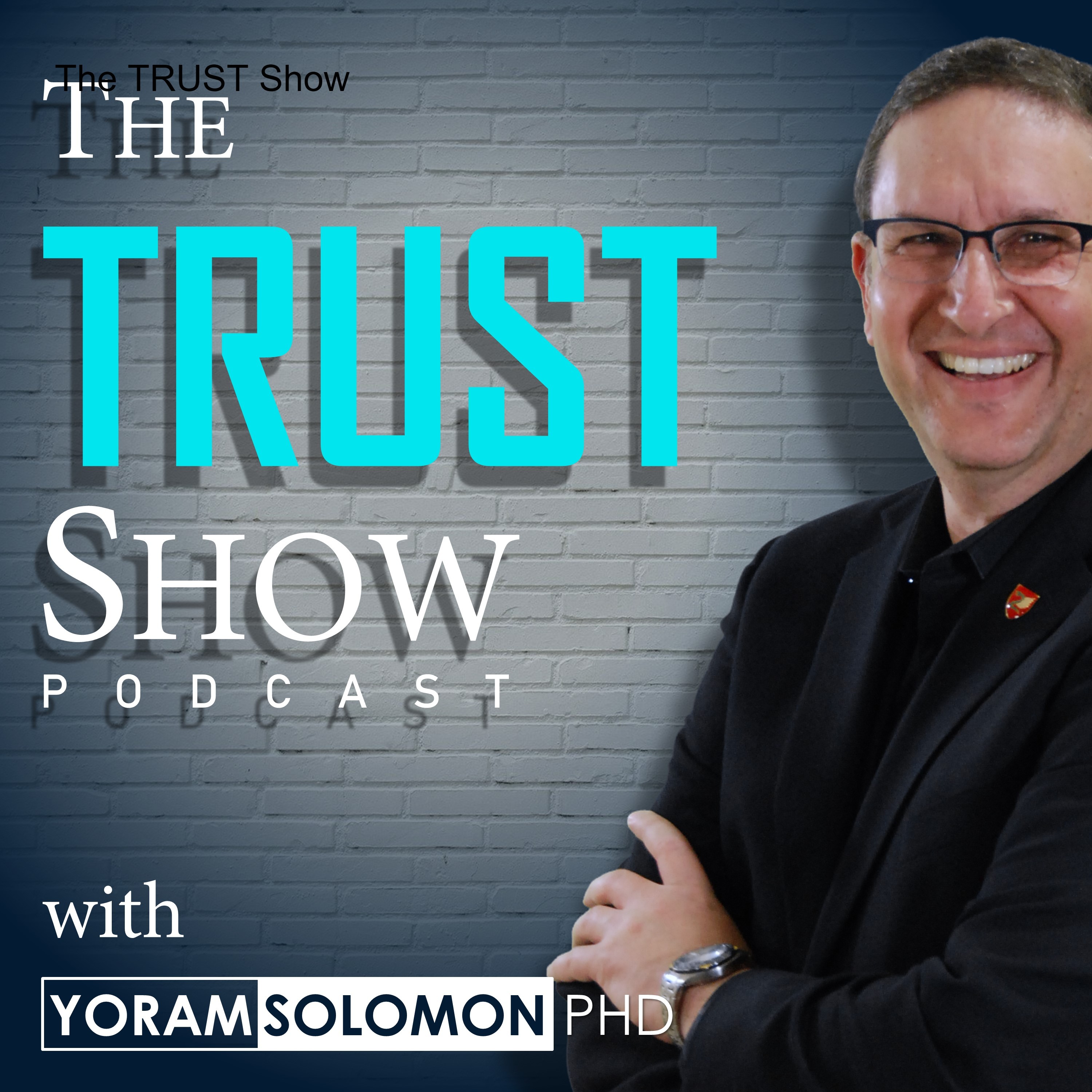
14.5K
Downloads
173
Episodes
Trust is not what you think it is. It is not absolute or universal. Trust is relative. The same behavior that would cause one person to trust you could cause another person to distrust you. The level of trust someone has in you is the product of their trustfulness (their willingness to trust other people) and your trustworthiness. There is almost (I said ALMOST) nothing you can do about the former, and everything you can do about the latter. Because of that, you must evaluate your own trustworthiness one relationship at a time, separately. Odds are, though, that the same behaviors that are holding you back from being more trusted in one relationship are holding you back from being more trusted in other relationships. Welcome to The Trust Show. I’m your host, Yoram Solomon, a top 10 trust expert and researcher, the author of the book of trust, and the creator of the Trust Habits® workshop that helps people and organizations form new habits that change old behaviors, build trust, and transform organizations. In this educational podcast, I will challenge you to think differently about trust, through the 8 laws of trust and the 6 components of trustworthiness. I will share my own stories, experiences of others, trust research, and sometimes, reflect on a news item. And through those, I will show you how to build trust, be trusted, and know who to trust. Because the answer to this question will have the biggest impact on your personal and professional, success or failure: can you be trusted?
Episodes
![S2E2: What Makes You Trusted? The NEW Trust-6 Model: Personality Compatibility [Part 1]](https://pbcdn1.podbean.com/imglogo/image-logo/11992684/TTS_New_fqieyv_300x300.jpg)
Sunday Aug 08, 2021
Sunday Aug 08, 2021
The second component of “who you are” is the personality compatibility. Since trust is relative (trust laws 1 through 4), personality compatibility should be considered through the eyes of the person you want to be trusted by. Personality compatibility has the biggest impact on how much the other person is willing to trust you, 86%.
There are five dimensions for personality compatibility. The first two are covered in this episode, the first of two episodes to cover this component.
The first dimension is the area of such compatibility. It includes how you interpret the world and communications, what are your values, your intentions, your actions and behaviors, and finally your personality characteristics (typically measured through personality assessments such as Myers Briggs, DiSC, StrengthsFinder, and the like).
The second dimension is the scope. It is a continuum that starts at universal scope, in which good is considered good by everyone and bad is considered bad by everyone. It continues through cultural scope, local/organizations scope (such as traditions and “how we do things here”), and down to the personal level, in which opposite behaviors and values could be equally valid and good (or bad).
This episode also discusses the differences between the ethical bar and the legal bar, and how compatibility (or incompatibility) there affects trust.

Comments (0)
To leave or reply to comments, please download free Podbean or
No Comments
To leave or reply to comments,
please download free Podbean App.